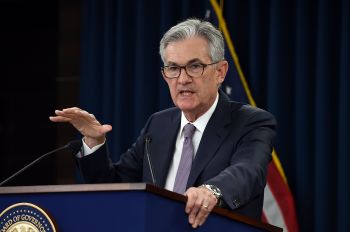Where does bailout money come from?
TEXT OF STORY
KAI RYSSDAL: The government’s been throwing cash around willy nilly to do all these bailouts. Bear Stearns, AIG, Fannie and Freddie. And that doesn’t even count the hundreds of billions in short-term cash loans to keep things flowing in the banking system.
Pretty soon you’re talking real money. But where’s it all coming from? And how often can Bernanke and Paulson keep going back to that well?
Marketplace’s John Dimsdale reports from Washington.
JOHN DIMSDALE: To help pay for these bailouts, the government sells securities. And right now, there’s plenty of demand because those securities are considered safe in the midst of all the turmoil.
For example, today the Treasury Department auctioned $45 billion in short-term IOUs. They’ll be bought back in only 35 days.
Ward McCarthy, the managing director of Stone and McCarthy Research Associates, says investors snapped them up at some very attractive interest rates for the government.
WARD McCARTHY: There were some people who actually bid zero, just to know that they would get their money back in 35 days. They were willing to lend the money to the Treasury for free, knowing that they wouldn’t lose it in the stock market or that they wouldn’t have it be held by another financial institution that could undergo some difficulties.
Is there a limit to the government’s largesse? Not as long as people are confident the government will pay its bills, says Wharton Business school professor Jeremy Siegel.
JEREMY SIEGEL: The government cannot run out of money. Go into your wallet and take a look at what you’ve got in it. It’s called Federal Reserve Notes. Those are under control of the Federal Reserve. Do you notice that they don’t say they are backed by gold. They are not backed by silver. They don’t have to have anything behind them except the full faith and confidence of the government.
And in the AIG case, the government might actually earn money. It’s demanding an 11 percent interest rate on its two-year loan, and holds nearly 80 percent of the insurance company as collateral.
In Washington I’m John Dimsdale for Marketplace.
There’s a lot happening in the world. Through it all, Marketplace is here for you.
You rely on Marketplace to break down the world’s events and tell you how it affects you in a fact-based, approachable way. We rely on your financial support to keep making that possible.
Your donation today powers the independent journalism that you rely on. For just $5/month, you can help sustain Marketplace so we can keep reporting on the things that matter to you.


















